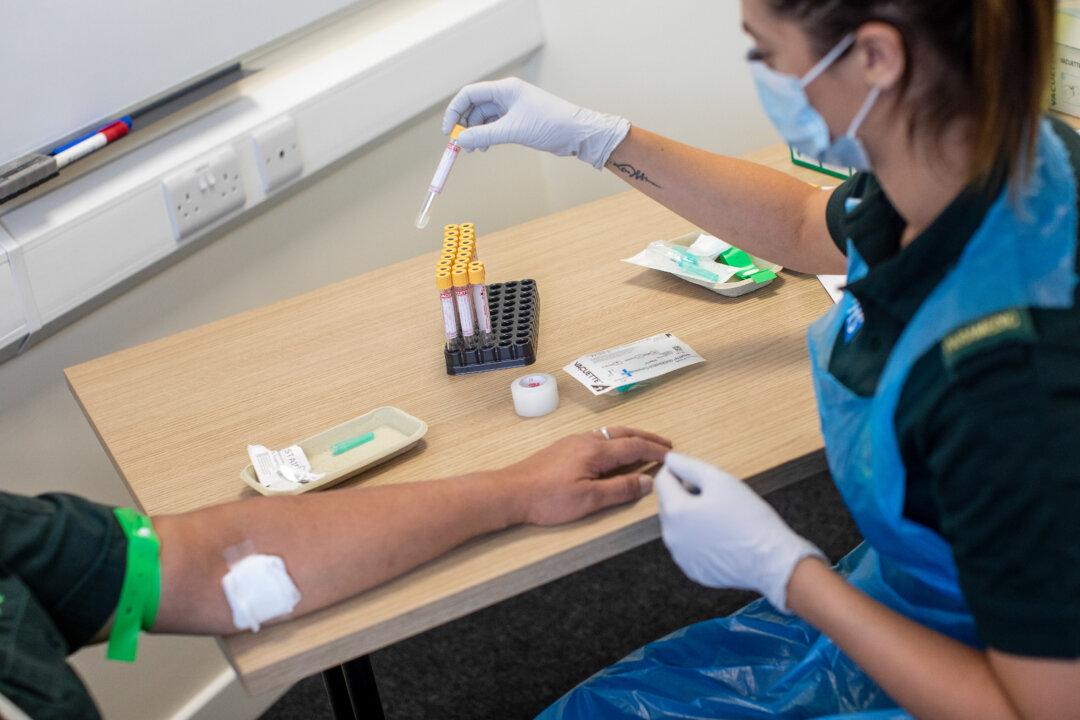An estimated 1 in 7 people had antibodies to the CCP virus in England in January, according to an analysis of a nationwide blood-test survey.
The analysis, published by the Office for National Statistics (ONS), uses blood-test data collected during the Coronavirus (COVID-19) Infection Survey to test for antibodies. It excludes infections reported in hospitals and care homes.





